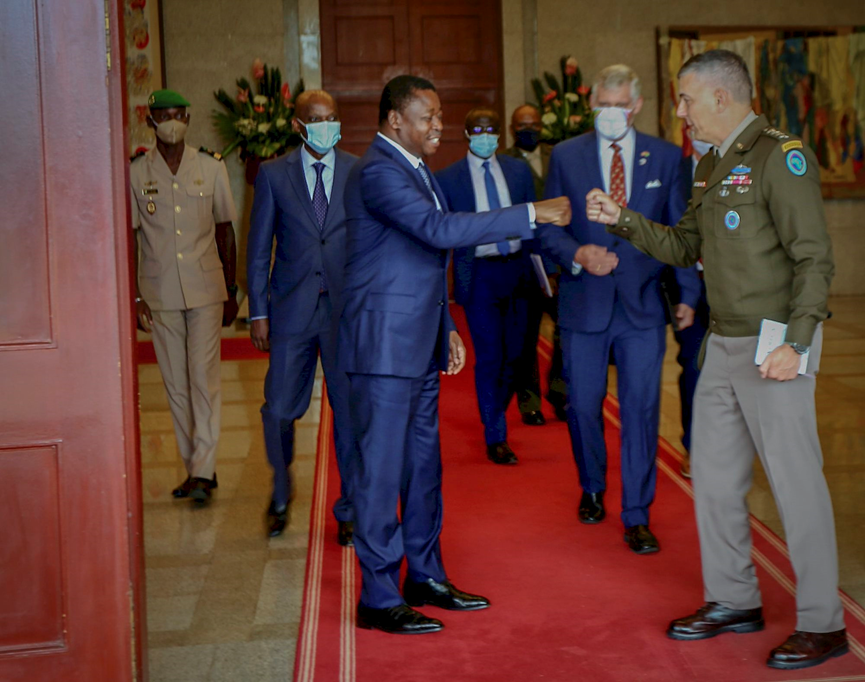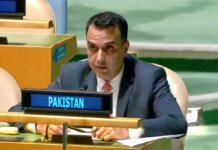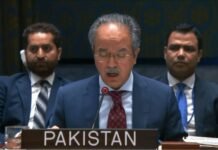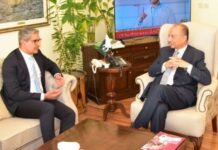Lomé, 30 March 2022 (TDI): On March 28, a team from Alpha Company, the 404th Civil Affairs Battalion (Airborne) of the United States concluded a month-long civil-military operations training for members of the Togolese Armed Forces (FAT), including five women. The training was focused on simulating peacekeeping and humanitarian missions in Togo.
BACKGROUND OF TOGO-US RELATIONS
In 1960, The United States established diplomatic relations with Togo after the country’s independence from a French-administered trusteeship.
Although several coups and assassinations took place between 1960 and 1967, Togo-U.S. relation has promoted overall with Togo’s progress in democratic improvement this century by working on holding legislative elections.
INTERNATIONAL AID OVERVIEW AND RELATIONS BETWEEN BOTH COUNTRIES
As diplomatic relations between the United States and Togo develop, the United States has provided international aid to the Togolese Government in a wide range of areas. They have a special focus on health, military education, and training, and also promoting economic growth.
According to the Department of State of the US, USAID does not have a full mission in the country but has been working there. Moreover, USAID has a West Africa Regional Mission located in Accra, Ghana; where they manage programs that benefit Togo.
One example of those programs is the two-year, $9 million program to help Togo quickly attain UNAIDS HIV/AIDS targets. Another program directed to benefit the country was the $20 million 5-year Mc Govern-Dole Program from the Department of Agriculture.
Another organization present in the country is the Peace Corps, which before covid, had 84 volunteers working in the field. Togo has made significant efforts to maritime and regional security and contributes over 1,200 troops to United Nations Peacekeeping Operations.
MILITARY COOPERATION BETWEEN TOGO AND U.S.
Assistance offered by the U.S. military to Togo can be divided into 2 parts; which are social welfare (including education, health) and military training. Moreover, from the perspective of military cooperation, U.S. Army Africa Command, known as US AFRICOM; has played a crucial role in this field, and also the State Partnership Program (SPP) in Africa.
SPP aims on building links between a unique component of the Department of Defense, a state’s National Guard, with the armed forces of a partner country in a cooperative, mutually beneficial relationship.
Togo has been a part of SPP since 2014, and its partner is North Dakota. Being a part of SPP strengthens the military cooperation between both countries. which offers both sides a robust military-to-military exchange.
In September last year, U.S. Army General Stephen Townsend, commander, of U.S. Africa Command visited Togo. Furthermore, Townsend and U.S. Ambassador Eric Stromayer met with President Faure Gnassingbe, Minister of Armed Forces Essozimna Marguerite Gnakade, and other high-ranking security leaders.

Both sides highly recognized the military ties between the two countries and looked forward to deeper and wider military cooperation.
BILATERAL ECONOMIC RELATIONS
According to the Department of State of the United States, Togo has a market-oriented economy. This make it eligible for preferential trade benefits under the African Growth and Opportunity Act.
Furthermore, the United States has a significant trade surplus with Togo. U.S. exports to Togo include mineral fuels, vehicles, plastics, and food products, while U.S. imports from Togo include artificial flowers, feather or down articles, shea butter, and cocoa.
The US has also supported the country to establish their export processing zone, and it has attracted private investors. According to the Department of State, the investors have an interest in manufacturing, pharmaceuticals, cosmetics, and food processing, primarily for the export market.
International Relations student at the Universidad de Navarra in Spain. Main interests are the work of International Organizations like the UN in the scope of humanitarian assistance to vulnerable human beings and the environment








